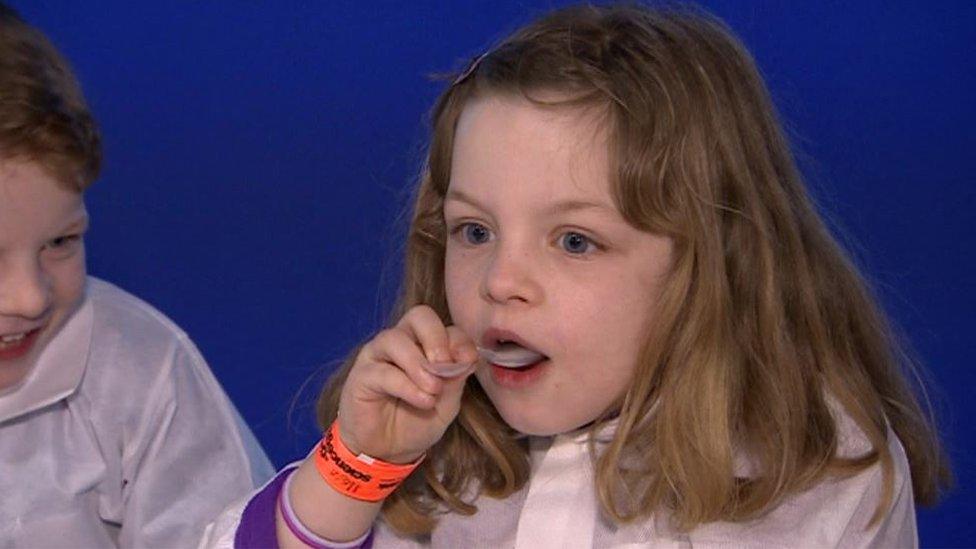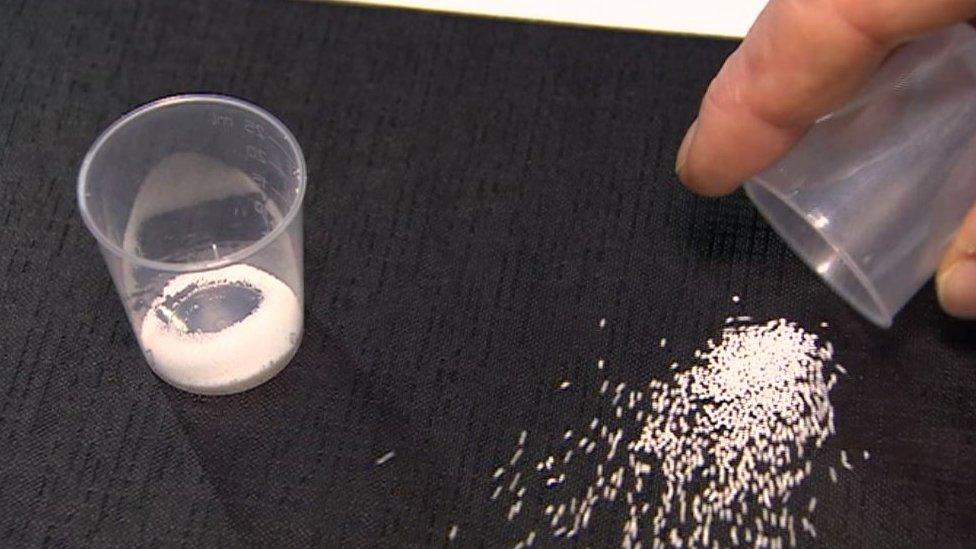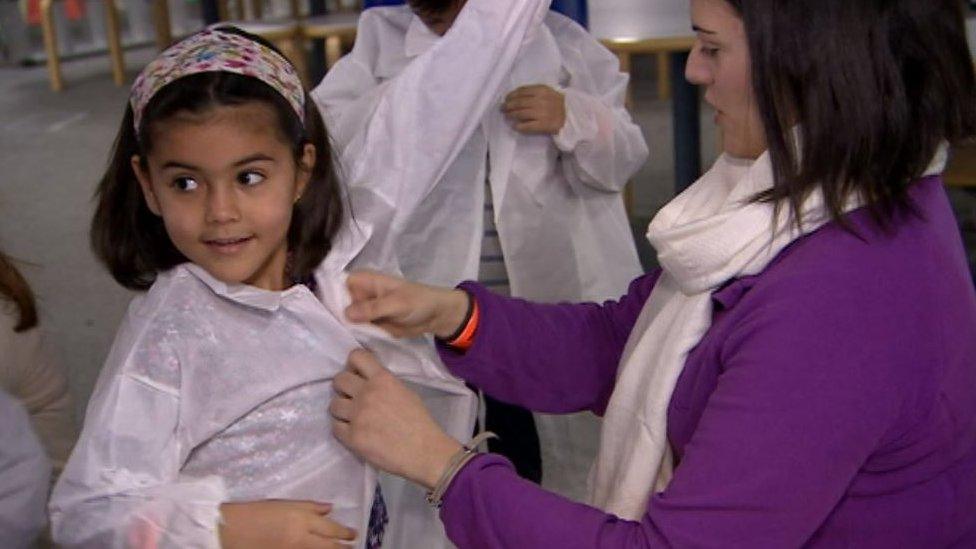Tackling the problems cause by nasty tasting medicines
- Published

Can drugs be palatable for children? This young researcher is unsure
The University of Birmingham has recruited some young scientists to help create more palatable medicines for kids.
About 90 children aged five to 12 will spend half-term at the city's science museum helping out with research into a new form of drug.
It's a cross between a pill and a liquid, formed by of lots and lots of tiny little grains.
The children are testing doses containing different sizes of grains with some coated and some not.
There's no active drug or even flavour in these test samples, it's all about the perceived "grittiness" of these potential medicines.

Parents can find it difficult to get their children to take necessary treatments if they taste horrible. Alternatively, scientists do not want them to taste too delicious
Talking to parents as they watched their young scientists (complete with mini-lab coats!) take part in the research I asked what problems they'd had giving their own children medicines.
I was surprised to find a banana flavoured antibiotic a particular problem. I'd assumed children loved bananas but it's that kind of easy assumption that can lead to problems.
Sometimes those problems can be serious. A child that doesn't like his or her banana flavoured antibiotic might not finish the course of treatment. That can lead to antibiotic resistance.
Heartbreaking
About a third of drugs taste so nasty the flavour is a barrier to children taking them at all.

Getting ready to take her medicine. But it can be difficult if they taste nasty
One drug commonly used to treat children with cystic fibrosis is supposed to taste like peppermint and pineapple.
But a researcher confessed to me it tasted more like grapefruit and sour milk.
From birth parents will have to give this to their child four times a day. One mother told the scientists that is stopped her bonding with her baby.
That's heartbreaking.
Now new legislation means drugs and their flavours and textures must at least be acceptable to children. Although it's a delicate balance between acceptable and enjoyable, researchers don't want to create medicines kids crave like sweets.
Eventually the hope is to create a way of delivering even the nastiest of drugs in a form that children can cope with.
These mini-scientists and their week of research at Thinktank will be helping solve some pretty big problems.